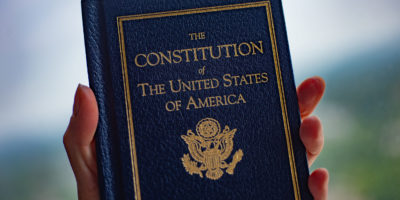by Joel Gehrke
Secretary of State Antony Blinken warned China not to “push at changing the status quo” as Beijing threatens to retaliate over Taiwanese President Tsai Ing-wen’s meeting with House Speaker Kevin McCarthy(R-CA).
“Beijing should not use the transits as an excuse to take any actions to ratchet up tensions,” Blinken told reporters Wednesday. “And our objective remains the same: to have peace, to have stability across the Taiwan Strait, and to ensure that any differences that exist between the mainland and Taiwan are resolved peacefully.”
Tsai will meet McCarthy and other U.S. lawmakers at the Ronald Reagan Library in California on a “transit” stop during her return to Taiwan from Central America. Their encounter is structured as a stopover meeting in an apparent effort to avoid a crisis of the scale that erupted following then-Speaker Nancy Pelosi’s (D-CA) visit to Taipei in August, but Chinese military forces launched a “joint cruise and patrol special operation,” and the regime’s newest aircraft carrier “entered Taiwan’s southeastern waters,” according to Taipei.
“On April 5th, PLAN Shandong aircraft carrier fleet passed through the Bashi Channel and entered Taiwan’s southeastern waters, launching its first West Pacific training,” Taiwan’s defense ministry posted on social media, using the acronym for the Chinese People’s Liberation Army Navy. “PLA’s deliberate action has jeopardized regional stability and caused tension in Taiwan Strait; however, external pressures will not hinder our determination to move towards the world & defend our country.”
Taiwan occupies an ambiguous position in international diplomacy despite the strategic centrality of the island democracy for Indo-Pacific shipping lanes and high-tech supply chains.
Chinese Communist officials have claimed sovereignty over the island since the establishment of their regime, but they have never ruled in Taipei, which is the last bastion of the nationalist Republic of China government overthrown when the Chinese Communist Party came to power in 1949.
“Even a bit of China cannot be left behind!” the PLA Eastern Theater Command wrote on social media on Tuesday, according to Chinese state media.
The United States maintained a treaty alliance with the Republic of China for decades after its removal to Taiwan, until Washington cut ties with its erstwhile ally in 1979 to establish diplomatic relations with the Chinese Communist regime in Beijing. Yet federal law has required presidents of both parties to maintain warm unofficial relations with Taiwan, including through arms sales intended to deter Chinese Communist forces from attempting to subjugate the island.
Read the rest of the article at Washington Examiner











